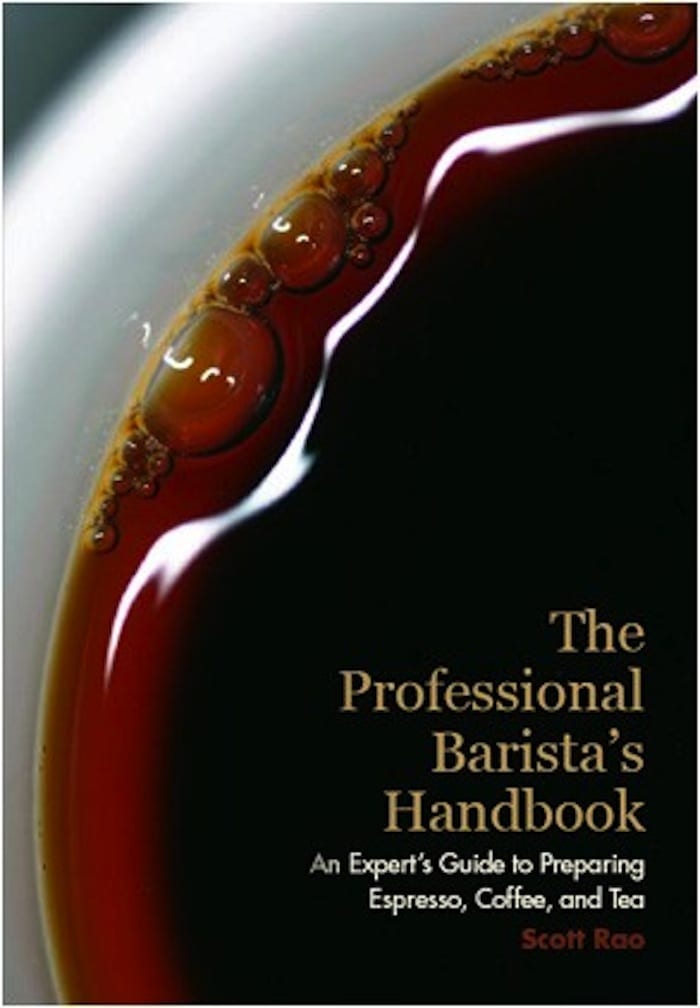Scott Rao needs no introduction for most of our readers. His landmark book The Professional Barista’s Handbook has influenced the current generation of coffee professionals perhaps more than any other single resource. His books have been formative for our own coffee education, so we were excited for the opportunity to ask him a few questions.
You recently published your third book on coffee, Espresso Extraction. What motivates you to write?
I wrote my first book because I had some free time after selling a business and had always been frustrated as a barista that there were no good resources for learning. After 14 years of full time work owning cafes, I felt I was ready to contribute to the industry’s knowledge base, and spent a few months educating myself in the local university’s physics library before writing the professional barista’s handbook.
What coffees have you been excited about drinking lately?
Unfortunately, I don’t drink too many coffees for pleasure these days. I try to limit myself to drinking what people send me when they need help with their roasting. For pleasure, I usually drink tea so that I don’t consume too much caffeine. (I’m really excited about a Fukamushi Sencha I’ve been drinking this month, if that helps!)
A lot of recent discussion about the science of brewing coffee has been driven by more people using refractometers. How have using total dissolved solids (TDS) and extraction percentages as a metric changed the way we brew coffee?
It’s been a long time coming, finally having an objective indicator of brewing results. For the first few years it was around, many baristi balked at using the coffee refractometer, as they seemed threatened by it. Thankfully, it’s now almost universally embraced and it’s helping baristi discover how extraction levels correlate to flavor, what extractions they prefer, and how to improve their brewing consistency.
What’s your idea of a perfect cafe? Do you have a cafe in mind that embodies this ideal?
Although people associate me with geeky, scientific coffee preparation, when I go to a cafe, what I care most about is customer service, a friendly staff, and a convivial or comfortable atmosphere. It’s rare that I really enjoy the coffee served in cafes, so I mostly seek out cafes for their atmosphere and service. I’m hesitant to name one particular cafe, I hope you understand.
Do you have an opinion about the “coffee shot” trend? Should we be using espresso machines to brew filter strength coffee?
I’m not a fan. I experimented with coffee shots about 10 years ago and found their extraction uniformity was lacking. In an auto drip brewer, for instance, the grounds and liquid dwell together and mix in a slurry, and the uniformity is pretty good. In a coffee shot, the top layers of grounds always get hit by the extraction water before the lower layers do, so there is a stratification of extraction levels throughout the coffee bed. The top will always extract more than the bottom. That unevenness is tasteable in the cup and limits my enjoyment of such a brew. There are much better ways to prepare a single-cup brew.
Your focus on the barista and the process of brewing coffee shows intense research and is considered authoritative in most coffee circles. Do you have any plans to write a book on roasting or any other part of the coffee supply chain?
Yes. I’m working on a book right now that I’m very excited about and I think will cause quite a stir.
When you’re not writing authoritative tomes on our favorite beverage, what do you do with your time?
I like to read, I practice yoga every day, I love to surf and am always happiest when I’m traveling.





Miss the great fresh roasted coffee at Scott’s original shop in Amherst!
I just bought Scott’s book (Complete Roasters Handbook) after sitting in on speech he gave at The Coffee Lab in Auckland’s North Shore in New Zealand. I have been roasting on a self taught trial and error basis for 6 years now and I finally have an insight into what I have been doing right AND wrong. Scott is a great guy and awesome resource.